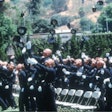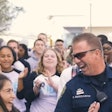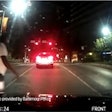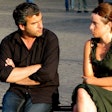One of the most challenging feats for a police officer is to learn a new city that you are working in. And memorizing each street name, route number, and landmark can quickly get extremely confusing for a recruit who is also learning a vast number of other topics. To my mind, the best strategy is to make it a game show for cops.
Who said learning can't be a little fun?
You are new to an area or part of the city and now you have to find your way about it. No problem if you are a tourist. But lives depend on you so you can't ride around in circles. So, what is the best way to learn?
There is no pat answer. Good maps, beat-specific maps with landmarks, and other cheat sheets are the starting point, but sometimes it gets down to memory. When I was an FTO I had a multi-tier game that I used to play with my recruits. Let me show you how.
Beginners or Level 1
We are riding around; you hear a street name go out on the radio. Tell me where that street is now! Give me a landmark close to the call as well. No, your grandmother's house does not count either.
If the recruit doesn't know, get out the map, FTO. This will teach map skills and orienting oneself via a map.
Intermediate or Level 2
OK, you got the street location correct. Great, now tell me how to get there from here under normal traffic conditions. This exemplifies the location A to location B skills under normal conditions.
This can vary due to other factors such as rush hour (avoid a particular street), construction, or school zones, for instance.
Feeling confident, are you? Then tell me how we would travel to that street or call under emergency conditions (lights and siren). Again, there are factors to consider here. The long way, which could be a divided, multi-lane road, may be a better selection than the prior response under such circumstances.
Advanced or Level 3
This game is usually conducted later in the training program or for a life-long resident of the area. A call is dispatched; tell me how you would respond to this as the contact unit on that call.
Then tell me how you would respond as the cover unit (i.e. take the back of the building, which could be on another street or cut off escape routes).
Bonus Point Time
Variables can add for extra stress. How would you respond to a call in progress under daylight conditions? Nighttime? Business hours? Under adverse weather conditions (some streets are prone to flood or are not primary snow removal routes)?
Once you've arrived at a known location (bank, school, or business), how would you approach to provide your concealment (hides you) and how for cover (stops incoming fire)?
The point of this entire "game" is to constantly promote critical thinking. You may be able to technically arrive, but adding the strategy for a tactical arrival can save a life or catch a fleeing crook! Wear your seat belts and drive safe.














